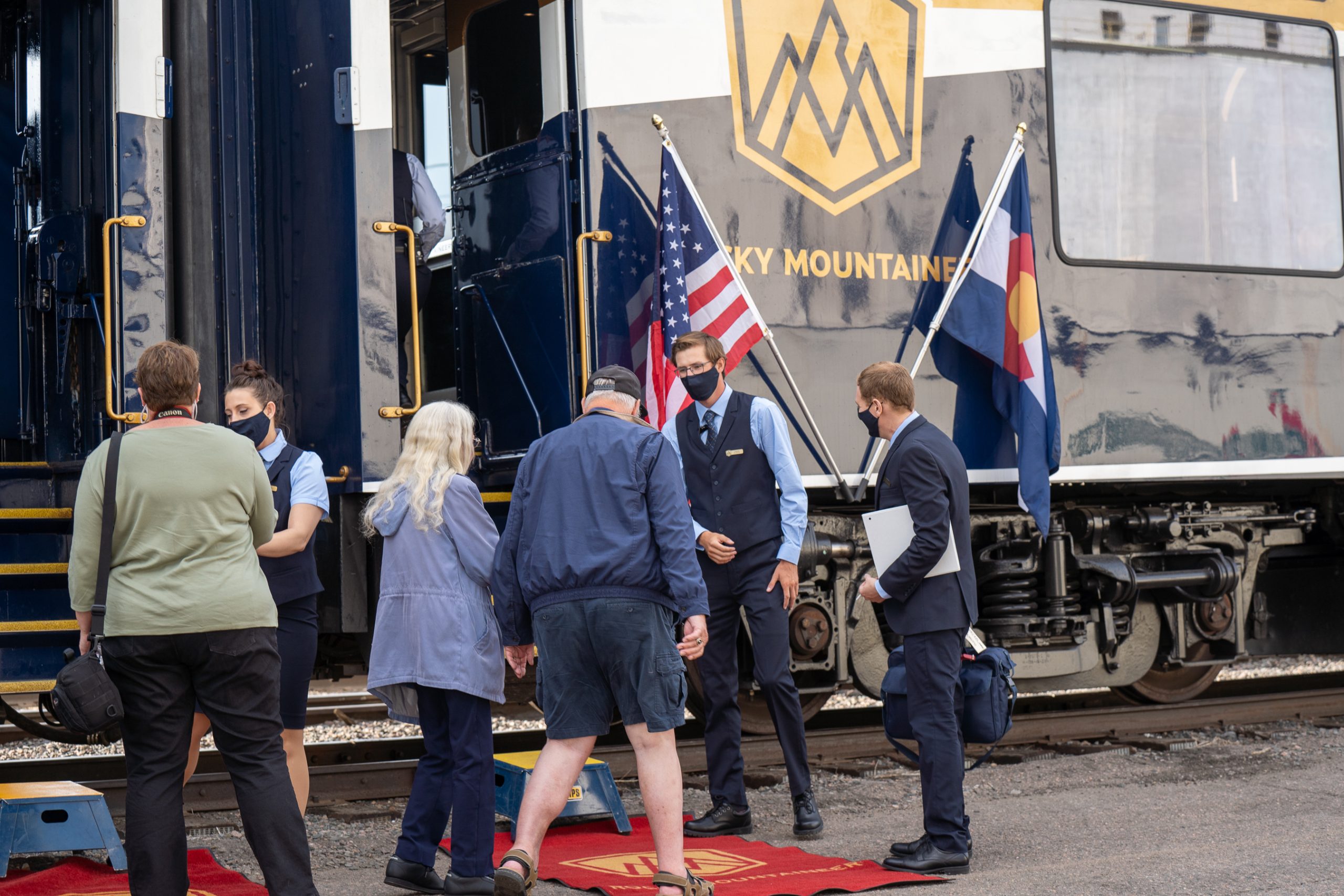Some information may be outdated.
Luxury rail tour company Rocky Mountaineer began service on its new route from Denver to Moab this week. After a test run several weeks ago, the company welcomed its first passengers on board in Denver on Aug. 15. After an overnight stay in Glenwood Springs, the train continued on to Moab on Aug. 16, arriving at a passenger loading/unloading station near the junction of Highway 191 and Highway 313, where passengers disembarked the train to board buses into town.
“The launch went super well!” said Emiko Kaneoka, a spokesperson for Rocky Mountaineer.
That passenger transfer station has been the subject of recent dispute between Grand County and Rocky Mountaineer. [See “Rocky start for luxury rail line: Denver-to-Moab service advances despite legal dispute with county,” from July 29 edition. -ed.] The county required the company to make certain site improvements and undergo inspections from the county and the Utah Department of Transportation; the company claimed its business is under federal regulation and not subject to county or state requirements.
Recently the two parties signed a stipulation agreement under which Rocky Mountaineer would complete site improvements, like adding road base and a culvert, and undergo an inspection from the County Road Supervisor. In turn, Grand County has agreed not to try to halt or impede Rocky Mountaineer’s operations while litigation is pending.
Grand County Road Supervisor Bill Jackson inspected the improvements last week and reported that Rocky Mountaineer had complied with all requirements.
“They put in road base—they went the extra mile, and instead of a one-lane turn-around, it’s more of a parking lot,” he said, referring to stipulations in the agreement regarding a bus turn-around.
Drainage improvements located in a right-of-way owned by UDOT have been inspected by that agency.
In the meantime, Rocky Mountaineer has filed a motion for summary judgement with the Utah District Court asking for a declaration that the Interstate Commerce Commission Termination Act preempts Grand County’s permitting and licensing requirements, and that the Federal Railroad Safety Act preempts the county’s requirements regarding the safety of the rail line and of the passengers. Grand County’s legal response says that the company’s motion “misstates and mischaracterizes the undisputed facts in this case, and overbroadly misstates the law pertaining to preemption.”
“The county’s goal is for the court to clarify the rules of the game for us—for current operations and also their future planned expansion if the business is successful,” wrote County Attorney Christina Sloan in an email to local media outlets. “For liability purposes, the county needs clarity on what its role is.” If, for example, the court rules that the county has no authority over railroad activity on private land in the county, then the county will have some protection from liability if anything goes wrong.
The parties will hold a conference with the district court on Sept. 7. Sloan expects a hearing date will be set for early winter.
Appreciate the coverage? Help keep local news alive.
Chip in to support the Moab Sun News.





